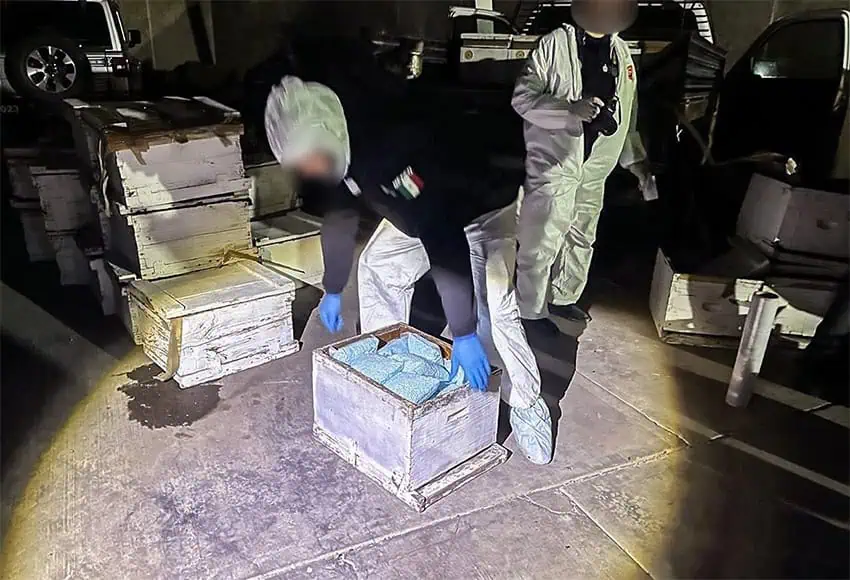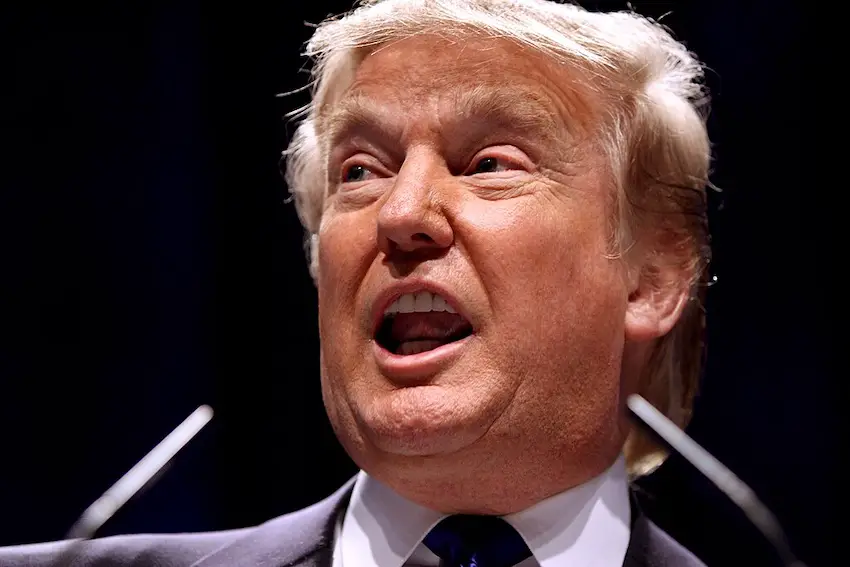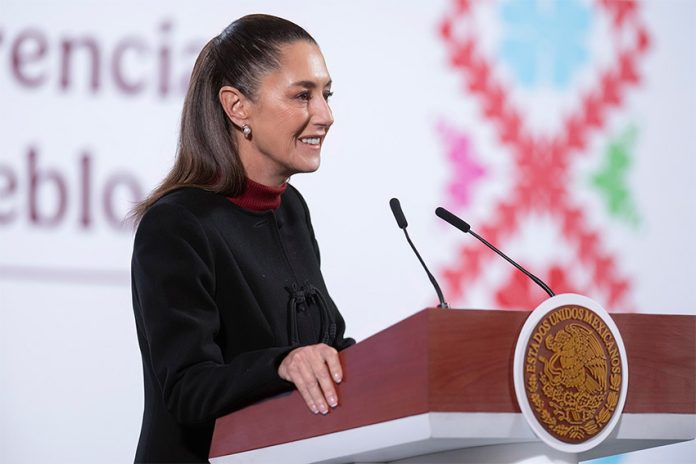After visiting the states of Jalisco and Tlaxcala on the weekend, President Claudia Sheinbaum was back at the National Palace in Mexico City on Monday for her morning press conference.
At her mañanera, as the president’s weekday morning presser is colloquially known, Sheinbaum spoke about a range of things including a New York Times Mexico dispatch from a fentanyl lab in Culiacán and the ruling Morena party’s apparent media strategy in response to Donald Trump’s promise to designate Mexican cartels as foreign terrorist organizations on his first day in office.
NYT report on fentanyl production in Sinaloa ‘not very credible,’ says Sheinbaum
Sheinbaum noted that The New York Times published a report on Sunday about fentanyl production in Sinaloa.
“An article came out that is important to highlight, in which two reporters allegedly go into a fentanyl laboratory,” she said.
“We talked about it in the security cabinet [meeting] today,” Sheinbaum said of the report headlined “‘This is What Makes Us Rich’: Inside a Sinaloa Cartel Fentanyl Lab.”
The president subsequently asserted that the photographs accompanying The New York Times report don’t in fact show the production of fentanyl. She claimed that the photos (and video) actually show the production of methamphetamine.

“The production of methamphetamine is one thing and another very different thing is [the production of] fentanyl,” Sheinbaum said.
“… So [the report] is not very credible, let’s put it like that,” she said.
Fentanyl is not produced in the way the Times’ photographs demonstrate, Sheinbaum asserted.
“Fentanyl is produced in other ways,” she said, adding that either the Navy Ministry or health regulator Cofepris “could report on” the methods used to produce the synthetic opioid largely responsible for the drug overdose crisis in the United States.
“The photographs aren’t credible,” reiterated Sheinbaum, who declared that her government would “scientifically prove” the alleged inconsistencies between the Times’ reporting and photos.
On Monday afternoon, The New York Times said on social media that it was “completely confident” in its reporting on “the production and testing of fentanyl in Mexico.”
“Our reporters spent months investigating the fentanyl industry, quoted current and former Mexican officials on the record about the production and testing of fentanyl in the country, and documented a fentanyl lab in Sinaloa. We stand by the reporting fully,” the Times said.
The New York Times responds to criticisms about our reporting on fentanyl production in Mexico: pic.twitter.com/xW7fu0xNMu
— NYTimes Communications (@NYTimesPR) December 30, 2024
Earlier this month, Sheinbaum rejected a New York Times report stating that the Sinaloa Cartel had recruited chemistry students to make fentanyl. She suggested that the newspaper drew inspiration for the Dec. 1 report from the television series “Breaking Bad.”
Sheinbaum denies knowledge of Morena ‘media strategy’ in response to Trump’s pledge to designate Mexican cartels as terrorist organizations
A reporter noted that the El Universal newspaper published details of a document that was reportedly sent to all Morena senators last week.
According to El Universal, “the Morena bench in the Senate designed a media strategy to reject the policy announced by the President-elect of the United States, Donald Trump, to classify Mexican cartels as terrorist groups.”
El Universal reported that the document outlining the strategy said that “the designation of Mexican cartels as foreign terrorist groups would represent the imposition of policies contradictory to the social treatment [of problems of violence] in the quest for peace and justice.”
Among other things, the document also reportedly said that a U.S. designation of Mexican cartels as terrorist organizations “would weaken Mexico’s international image.”
In addition, it warned of possible “revolts and armed uprisings” in Mexico if the U.S. military were to carry out operations against Mexican cartels inside Mexican territory.

Asked whether she knew about “these alarmist positions of Morena in the Senate,” Sheinbaum responded that she did not.
“I don’t know who drew up the document, I don’t know it,” she said. “I don’t want to offer an opinion on a document that I don’t know.”
Sheinbaum stressed that she didn’t know whether a single senator or a group of Morena senators wrote the document. She also said she didn’t know the “motive” of the document.
“What is important,” Sheinbaum said, is that Donald Trump, during his first term as U.S. president, had a “very good” and respectful relationship with former Mexican president Andrés Manuel López Obrador.
“And that’s why I trust that we’re going to have a good relationship of respect, of coordination, not of subordination,” she said.
Sheinbaum wishes Mexicans ‘a happy 2025’
Sheinbaum, who won’t hold morning press conferences on Tuesday or Wednesday, wished Mexicans “the best this new year” as well as “a happy 2025.”
She said that her government would conduct “an evaluation” of 2024 in Mexico in economic, social and political terms and report its findings at her press conference on Thursday.
Sheinbaum added that the Mexican people took two “transcendent” decisions when they went to the polls in June.
“The first is that [they voted for] the transformation to continue,” she said, referring to citizens’ strong support for the ruling Morena party and the so-called “fourth transformation” of Mexico initiated by López Obrador.
“… And, at the same time, they took the great decision for a woman to govern our country for the first time. This is part of the transformation, they go together, not apart,” Sheinbaum said.
By Mexico News Daily chief staff writer Peter Davies ([email protected])
